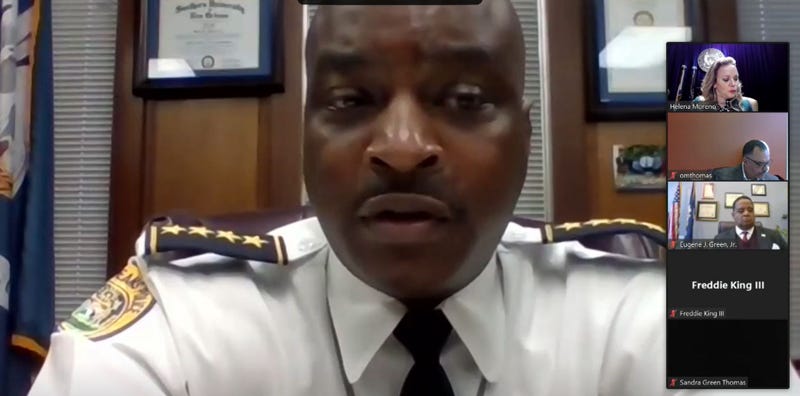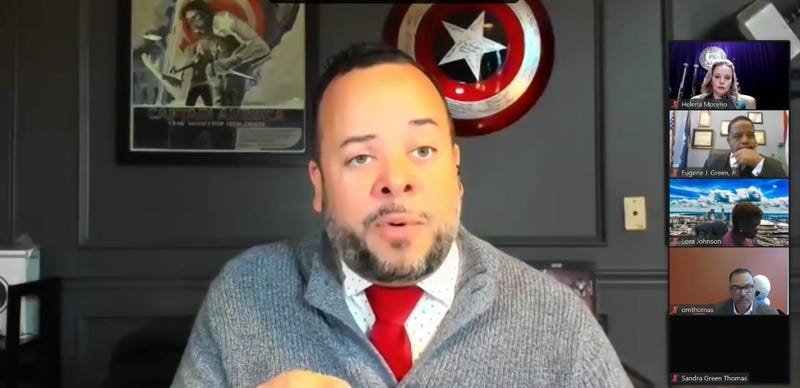
The New Orleans City Council dives into the city's surge in carjackings, murders, and shootings at today's City Council meeting.
New Orleans Police Superintendent Shaun Ferguson faced a new panel of city council members in their first regular meeting session together.
The message from each councilmember was largely the same; constituents are afraid, not enough is being done to fight crime, and not enough support is being given to law enforcement to get the job done.
“I speak for myself and several of my colleagues in that the time for pleasantries has passed,” said Councilmember JP Morrell. “We should all be candid with each other, in these conversations today and next week, and we should all be 100% with working together but admitting where the shortcomings are so that we can work together to solve them.”

“I want to thank the police department for the incidents that I was involved with where there had been a call for police…I was carjacked…the police vehicle that witnessed the incident after I have waved and told him I had been carjacked…couldn’t pursue because of the non-pursuit policy,” Councilmember Eugene J. Green shared with the council.
What is the NOPD doing to address crime?
Chief Ferguson says the federal consent decree and the pandemic have presented unique challenges for his department.
One such challenge is putting more officers on the streets and not behind a desk.
“We have exhausted every means necessary to ensure that we are putting our best foot forward with putting commissioned officers on the streets of New Orleans,” Ferguson explains. “Prior to 2020, with our recruitment efforts… we were receiving 4 to 500 applications per month. Now, we are receiving on average, 250 per month.
Of the 1,058 commissioned officers in his department, Ferguson tells councilmember Helena Moreno that 600 officers are out patrolling the streets.
Despite the staffing issues, Chief Ferguson says his department is taking a more proactive approach to officer deployment by utilizing more overtime for officers.
“We have been more thoughtful in the use of our overtime and deployment,” Ferguson explained.
Ferguson says he continues to monitor crime trend data to better help him in deploying officers in areas where violent crime is rampant.
“Every day we change up our strategies, we bring in support, we have a situational response team that will support a district whenever they have flare-ups, like this past Saturday, where we had that series of carjackings.”
He says some minor vehicle laws that were not being enforced before, will now be the focus for some officers, which he says will lead to proactive policing of violent crime.
“Full windshields tinted, expired brake tags, things that we didn’t necessary enforce before because of COVID…DMV being closed… but we know in those types of vehicles, for the most part, they tend to move drugs, they tend to move illegal weapons, they tend to commit crime…if we address some of the minor violations it could lead to us getting the major, most violent violations occurring.”

